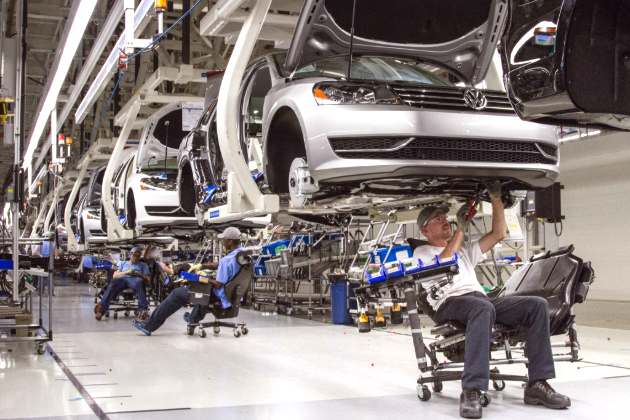Scientists Find Lab-Kept Honey Bees Live Only Half As Long As They Did 50 Years Ago
Merxwire
19 Nov 2022, 23:23 GMT+10

Why are bees declining, and where have they all gone? A study from the University of Maryland showed that compared to experiments in the 1970s, the lifespan of lab-kept honey bees was 50% shorter than at the time.
Washington, D.C. (Merxwire) - In recent years, the number of bees has dwindled, and many people blame climate change and environmental pollution for the problem, but these may only be part of the reason. A study from the University of Maryland showed that compared to experiments in the 1970s, the lifespan of lab-kept honey bees was 50% shorter than at the time. The study was published in Scientific Reports on November 14, 2022.
When entomologists Anthony Nearman and Dennis vanEngelsdorp of the University of Maryland conducted "standardized protocols for rearing adult bees in the laboratory," they noticed bees' shortened lifespan. Scientists modeled its impact and found that the results matched the "increased colony loss" and "decreased honey production" trends that American beekeepers have seen in recent decades.
The researchers collected bee pupae, completed their growth in incubators, and then raised adults in special cages. Using deionized water, 1% NaCl deionized water, or tap water to supply sugar water to the bees, the researchers found that compared to similar experiments in the 1970s, the average lifespan of bees today is about half as long, regardless of their diet.

According to the study, lab-kept honey bees live for 17.7 days today, compared to 34.3 days for lab-kept honey bees in the 1970s, a result that not only prompts an in-depth review of past published research but also rethinks: What is the real reason why the bees are missing? Because these findings may represent that bee life shortening has nothing to do with environmental factors but a genetic influence!
"We're isolating bees from the colony life just before they emerge as adults, so whatever is reducing their lifespan is happening before that point," Dr. Anthony Nearman said in a press release. "This introduces the idea of a genetic component. If this hypothesis is right, it also points to a possible solution. If we can isolate some genetic factors, then maybe we can breed for longer-lived honey bees."
"When I plotted the lifespans over time, I realized, wow, there's actually this huge time effect going on," Nearman said. He points out that people would expect lab-kept honey bees to live longer or the same because we are getting better at raising and controlling the environment. But it turned out to be the opposite of what we thought, and we saw a doubling of bee mortality rates.
The lifespan of lab-kept honey bees is similar to that of a beekeeper's colony! Scientists believe that genetics may be the main reason for the shortened lifespan of bees. Beekeepers often choose colonies with desirable characteristics for reproduction, and shorter-lived bees are less likely to spread disease, meaning shorter-lived colonies appear healthier and more productive. In this case, the raised bees will have a shorter lifespan.
 Share
Share
 Tweet
Tweet
 Share
Share
 Flip
Flip
 Email
Email
Watch latest videos
Subscribe and Follow
Get a daily dose of Utah Independent news through our daily email, its complimentary and keeps you fully up to date with world and business news as well.
News RELEASES
Publish news of your business, community or sports group, personnel appointments, major event and more by submitting a news release to Utah Independent.
More InformationInternational
SectionDozens dead as U.S. launches large scale offensive in Yemen
WASHINGTON, DC - U.S. President Donald Trump has joined Israel's war on Yemen's Houthis, days after the group said it would resume...
SPHEREx telescope to create a three-dimensional map of the cosmos
LOMPOC, California: NASA launched a new telescope into space this week to study the origins of the universe and search for hidden water...
Texas, New Mexico report 28 new measles cases in five days
AUSTIN/SANTA FE: Texas/New Mexico have reported 28 new measles cases in the past five days, bringing the total to 256 since the outbreak...
NTSB urges FAA to restrict helicopters near Reagan National Airport
WASHINGTON, D.C.: U.S. Transportation Secretary Sean Duffy announced that helicopters will be permanently banned from flying near Washington...
Virginia governor warns US must fast-track fusion or fall behind China
NEW YORK CITY, New York: The U.S. must accelerate its efforts to develop fusion energy or risk losing its edge to China, Virginia Governor...
China now dominates shipbuilding; US faces security risks
WASHINGTON, D.C.: In the past 20 years, China has become the world's top shipbuilder, producing more than half of all commercial ships....
Business
SectionUAW files labor complaint as Volkswagen cuts Tennessee production
DETROIT, Michigan: Volkswagen's decision to scale back production at its Chattanooga, Tennessee plant has sparked backlash from the...
Spotify paid a record $10 billion in music royalties in 2024
STOCKHOLM, Sweden: Spotify set a new milestone in 2024, paying out US$10 billion in royalties—the highest annual payout to the music...
Jaguar Land Rover opts out of EV production at Tata’s India plant
NEW DELHI, India: Jaguar Land Rover (JLR) has decided against manufacturing electric vehicles at Tata Motors' upcoming $1 billion factory...
Virgin Group aims to raise $900M for cross-channel rail venture
LONDON, U.K.: Virgin Group is seeking to raise $900 million to fund its plan to launch cross-channel rail services, positioning itself...
Boeing's February deliveries surge to 44, up from 27 last year
SEATTLE, Washington: Boeing saw a significant increase in aircraft deliveries in February, reporting 44 planes delivered compared to...
Southwest ends free checked bags, introduces new fees
DALLAS, Texas: Southwest Airlines will start charging passengers for checked bags, ending a long-standing policy that set it apart...















